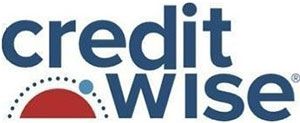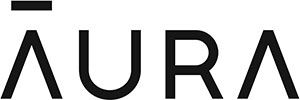Best Credit Monitoring Services in 2025 (Free and Paid)

If you have ever applied for a car loan, home mortgage, or apartment, you know that in addition to checking references and employment, your credit score will also be checked. Based on the results of your credit report, you may or may not qualify for your loan. To stay on top of your credit score and ensure you’re maintaining good credit, you may want to sign up for a credit monitoring service.
Best Free Credit Monitoring Services
Best Paid Credit Monitoring Services
Everyone should have a general idea of what their credit score is, but with the amount of identity theft that’s occurring these days, and how much is riding on having a good – and accurate – credit score, many people find it beneficial to sign up with a credit monitoring service so they’ll always know exactly what’s happening with their credit. The good news is there are both fee-based and free credit monitoring options available.
What Are Credit Monitoring Services?

A credit monitoring service is a type of personal finance software that allows consumers to watch over their credit reports in real-time and respond to any incidents of fraud like identity theft, suspicious activity, or data breaches. By addressing these disruptions right away, you can then minimize the negative effects on your credit score and future borrowing potential. Without a service like this, fraudulent activity might otherwise go unnoticed.
It’s worth pointing out that these monitoring services cannot actually stop these occurrences from happening in the first place, they can only alert you to them when they do happen. In most cases, if these are caught swiftly they can be addressed and removed from your credit report, greatly reducing the amount of time it affects your score.
There are three main credit reporting agencies: Experian, Equifax, and TransUnion. Each of these companies collects credit information about consumers and then sells this data to lenders who need to vet potential borrowers. When applying for a loan, your lender may have one credit agency they prefer to use, or they may pull reports from all three and use the median score.
Ideally, you should know your score from each credit bureau since they don’t all receive the same exact information. The Fair Credit Reporting Act (FCRA) enables consumers to request a free copy of their credit report from each agency once every 12 months. And, while this is helpful, many people find it useful to know more than once a year what’s going on with their credit.
Credit monitoring is just one tool that consumers can use to protect their identity and improve their credit. If you’re planning to take out a mortgage there are several other personal finance recommendations you should follow to guarantee you’re in the best position to qualify for a loan.
How Much Does Credit Monitoring Cost?
Most monitoring services break down their offerings into basic or premium options. A free credit monitoring service will usually only offer basic services, and they may not pull information from all three credit reporting bureaus. Additionally, they’ll likely have limited identity theft protection. However, free is a very good price if you’re simply curious about monitoring your credit and you have no reason to suspect you’re in danger of fraud.
On the other hand, paid credit monitoring services can provide you with premium protection and reports from all three agencies, and many offer identity theft insurance included in their fees. Furthermore, premium services can also alert you to potential fraud and monitor misuse of your address, Social Security number, and medical ID number. Charges will vary depending on the company you choose, but monthly fees will range from $8.99/month to $39.95/month.
Best Free Credit Monitoring Services
Credit Karma

Credit Karma uses TransUnion and Equifax data to provide weekly-updated credit reports as well as daily updates on your VantageScore. The service alerts you to any suspected fraud, and signing up is easy because it’s always free and you never have to provide a credit card number to join. Like most of the other free services, CreditKarma does not provide any identity theft insurance protections.
CreditWise

CreditWise is a free service by CapitalOne that uses Experian, TransUnion, and VantageScore reports to alert you of any fraud. It also monitors the dark web for use of your personal information. Customers who already have a CapitalOne credit card have automatic access to this service through the mobile app, but anyone can download the app for use.
Experian (free plan)

The Experian free plan offers a monthly credit report and FICO score and includes notifications any time a hard inquiry is made under your name. It provides a one-time dark web scan when you initially sign up, but afterward, this service is not included. Users can also take part in Experian Boost which allows them to potentially boost their credit score by including utility and phone bill data in their report.
Credit Sesame

Credit Sesame uses TransUnion data to give free monthly credit reports and alert you of any changes to your account. And, even though the service is completely free, it does provide $1 million in ID theft insurance as well as live support to help recover data if there is a breach.
Best Paid Credit Monitoring Services
myFICO

myFICO is one of the more expensive services starting at $19.95/month, but it does boast the most access to different versions of your credit score – up to 28 in total, making this one of the most accurate services you can find. myFICO is run by the Fair Isaac Corporation (creators of the FICO score) and is considered the gold standard in credit reporting. It also offers real-time alerts for any situation where your credit information is used to open an account, anytime a change of address request is made, anytime a credit inquiry is made, or anytime it detects changes to your account history.
Privacy Guard

PrivacyGuard offers one of the lowest priced services, but also gives excellent insurance coverage against identity theft. They also offer a 14-day trial period for only $1 for consumers who aren’t sure they’re ready to commit to a monthly fee. PrivacyGuard uses information from all three major credit reporting agencies and notifies you by text, email, or phone call if a fraud alert is detected. Its basic service, available for $9.99/month also includes identity theft protection up to $1 million, coverage that most other services charge more for.
Experian IdentityWorks

The Experian IdentityWorks service starts at $24.99/month for one person and monitors all three major credit agencies. IdentityWorks is a good option for families since it can cover up to 10 children starting at $34.99/month. The service routinely scans the dark web for your personal information, informs you if a payday loan has been taken out in your name, alerts you of any address changes that have been filed with the U.S. Postal Service, and monitors misuse of your social security number. IdentityWorks also provides ID theft protection insurance for up to $1 million along with a free 30-day trial period included with the premium subscription.
Identity Guard

Identity Guard is another low cost option for those interested in a paid service. Its lowest tiered “Value” option starts at only $7.50/month, or you can pay up to $25.00/month for an “Ultra” plan, but both come standard with $1 million in identity theft protection, a personal case manager for all confirmed cases of identity fraud, and access to your alerts through an easy-to-use mobile app. It’s worth noting that the lowest cost plan has extremely limited credit monitoring, and for reports from all three credit agencies you’ll need to upgrade to the next tier.
IdentityForce

IdentiyForce keeps its plan options simple with only two choices: UltraSecure and UltraSecure+Credit. The former only covers identity monitoring while the latter adds on credit monitoring as well. In addition to its basic amenities, these plans also offer services to protect your data including tools to reduce junk mail, enhance your digital security and detect spyware, and manage your passwords and private information. The plans also offer exceptional ID theft coverage with $1 million for out-of-pocket expenses and an additional $1 million for stolen funds.
Aura

Aura is primarily a digital security service that also offers identity protection and credit monitoring. All its monitoring plans provide the same services, and the tiered pricing structure only applies to how many people are covered (single member, couple, or group of up to five). This service is ideal for those looking for comprehensive protection for their personal information including online security, ID protection, and credit monitoring. One drawback of this service is that Aura only uses one credit reporting agency when checking your credit score.
LifeLock

LifeLock was established in 2005 and it remains one of the best credit monitoring services on the market. Its most basic tier only provides an Equifax credit report. To get scores from all three agencies you must sign up for their Ultra tier which costs $339.99/year. However, all three available tiers monitor your credit score, SSN, and provide the “Million Dollar Protection” package which includes $25,000 in coverage for both personal expenses and stolen funds, and $1 million in coverage for legal fees.
Equifax

As one of the big three credit reporting agencies, Equifax offers consumers two options for credit monitoring, its Complete and Complete Premier plans. Though the basic plan lets you check your score daily, it only uses one reporting service; however, it also includes daily access to your VantageScore. You can also lock your Equifax credit report at any time, and put an alert on it whenever you suspect fraud. Its Complete Premier plan includes scores from the other two credit bureaus, increases ID protection insurance, and has enhanced monitoring of the dark web.
Credit Freeze vs Credit Lock: What’s the Difference?
Many of these services offer either credit freezes or credit locks, and while these may sound similar, they work in slightly different ways. In general, a credit freeze is free and a credit lock is only available with a paid subscription. Both can restrict access to your credit file if you’ve been the victim of fraud or if your personal information was involved in a data breach.
A credit freeze is available by federal mandate to all consumers, but you’ll have to request a separate freeze from each of the reporting bureaus. Within 24 hours of your request, your account will be frozen. Freezes can be lifted (“thawed”) within an hour of your request for it to end. A credit lock does essentially the same thing except it can go into effect faster because you’ve already signed up with a monitoring service, and they can be unlocked immediately.
How To Choose the Best Credit Monitoring Service
The two biggest choices you have when shopping for a credit monitoring service is whether you want a free or paid subscription, and this will depend on your level of need or concern about your credit security. If you’ve had your identity stolen in the past and you’re concerned about future fraud, you may want to make a monthly investment to ensure you constantly have an eye on your credit score and are alerted of any potential issues.
A paid subscription may also be preferable for someone who’s trying to rebuild their credit and may need help sticking to a personal budget. These services can help you see your progress and motivate you to work toward your financial goals such as qualifying for a home mortgage. There are also specific options for business credit monitoring for small business owners hoping to catch credit issues before they can cause major harm.
For those who are curious about what these resources can offer but don’t feel they need to spend money, opt for one of the free services for a few months to see if it’s useful. On the whole, everyone should be informed of their current credit score and actively protect their identity. Fortunately, a credit monitoring service can offer this security at a relatively low cost.